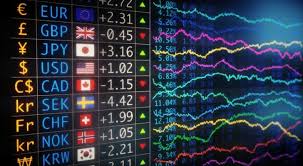

Forex trading in Malaysia has gained significant popularity over the past few years, attracting both seasoned traders and newcomers. As the global financial landscape evolves, many are looking towards foreign exchange as a viable investment avenue. In this context, understanding the market’s intricacies, regulations, and available resources is paramount. For instance, while navigating the forex market, one might also consider the services of forex trading malaysia Forex Brokers in Côte d’Ivoire as a comparison or alternative option for forex trading strategies.
Forex, or foreign exchange, involves the trading of currencies against one another. The forex market is the largest and most liquid financial market in the world, with daily trading volumes exceeding $6 trillion. This massive scale offers ample opportunities for traders to profit from currency fluctuations. In Malaysia, forex trading is increasingly recognized as an alternative investment strategy, particularly among millennials and the tech-savvy population.
Before diving into forex trading, it’s essential to understand the regulatory framework governing the practice in Malaysia. The Securities Commission Malaysia (SC) regulates all trading activities in the country, including forex trading. Furthermore, the Central Bank of Malaysia (Bank Negara Malaysia) oversees currency exchange and ensures that all transactions comply with local laws. Traders should only engage with brokers licensed by these regulatory bodies to safeguard their investments and ensure a fair trading environment.
Selecting a reliable forex broker is a critical step in your trading journey. There are several factors to consider when choosing a broker:
Successful traders often employ various strategies based on market analysis and their individual risk tolerance. Common strategies include:
Scalping involves making multiple trades throughout the day to capitalize on small price movements. This strategy requires quick decision-making and a deep understanding of market trends.
Day trading involves buying and selling currencies within the same trading day. Day traders aim to close all positions before the market closes to avoid overnight risks.

Swing trading allows traders to capitalize on price swings over several days or weeks. This strategy requires patience and careful market analysis to identify optimal entry and exit points.
Position trading involves holding positions for extended periods, from weeks to months. This strategy is best suited for traders who believe in long-term market trends.
Effective risk management is crucial in forex trading. Traders must be aware of the potential risks and implement strategies to mitigate them, such as:
The rise of technology has significantly impacted forex trading. Traders now have access to advanced tools and resources that make trading more efficient. Some notable advancements include:
Automated trading systems can execute trades based on pre-defined criteria, saving traders time and reducing emotional trading.
Mobile trading apps allow traders to monitor their positions and execute trades from anywhere, making forex trading more accessible than ever.
As Malaysia continues to develop its financial markets, the potential for forex trading remains robust. With an increasing number of retail traders entering the market, along with advancements in technology and regulation, the future looks promising. Education and access to the right tools will empower Malaysian traders to hone their skills and achieve success in forex trading.
In conclusion, forex trading in Malaysia offers exciting opportunities but comes with its challenges. By understanding the market, choosing a reputable broker, implementing effective strategies, and managing risks, traders can navigate this dynamic environment successfully. Whether you are a novice or an experienced trader, continuous education and adaptation to market changes will be crucial in maximizing your trading potential.
2025年11月07日